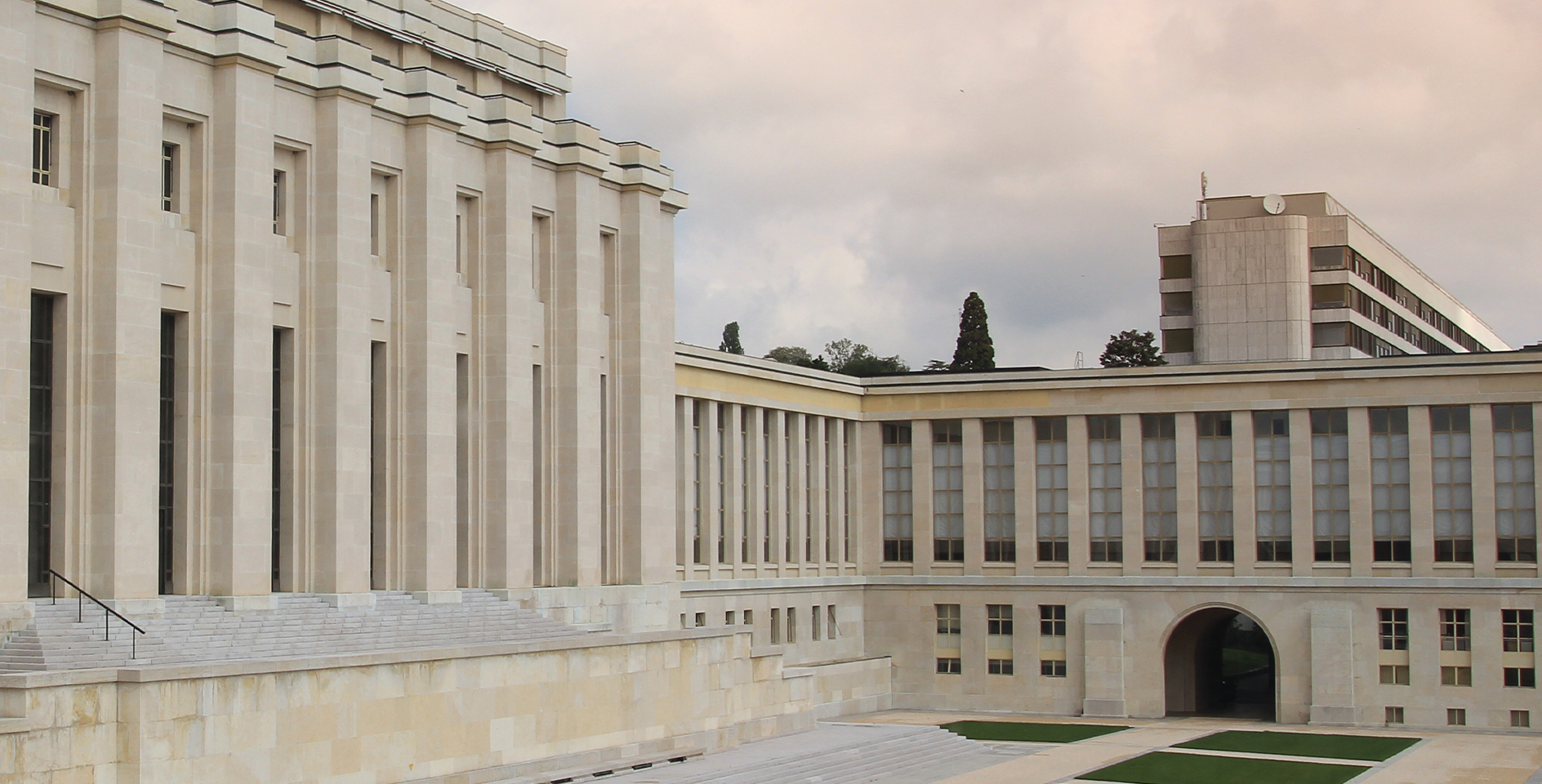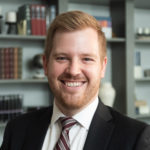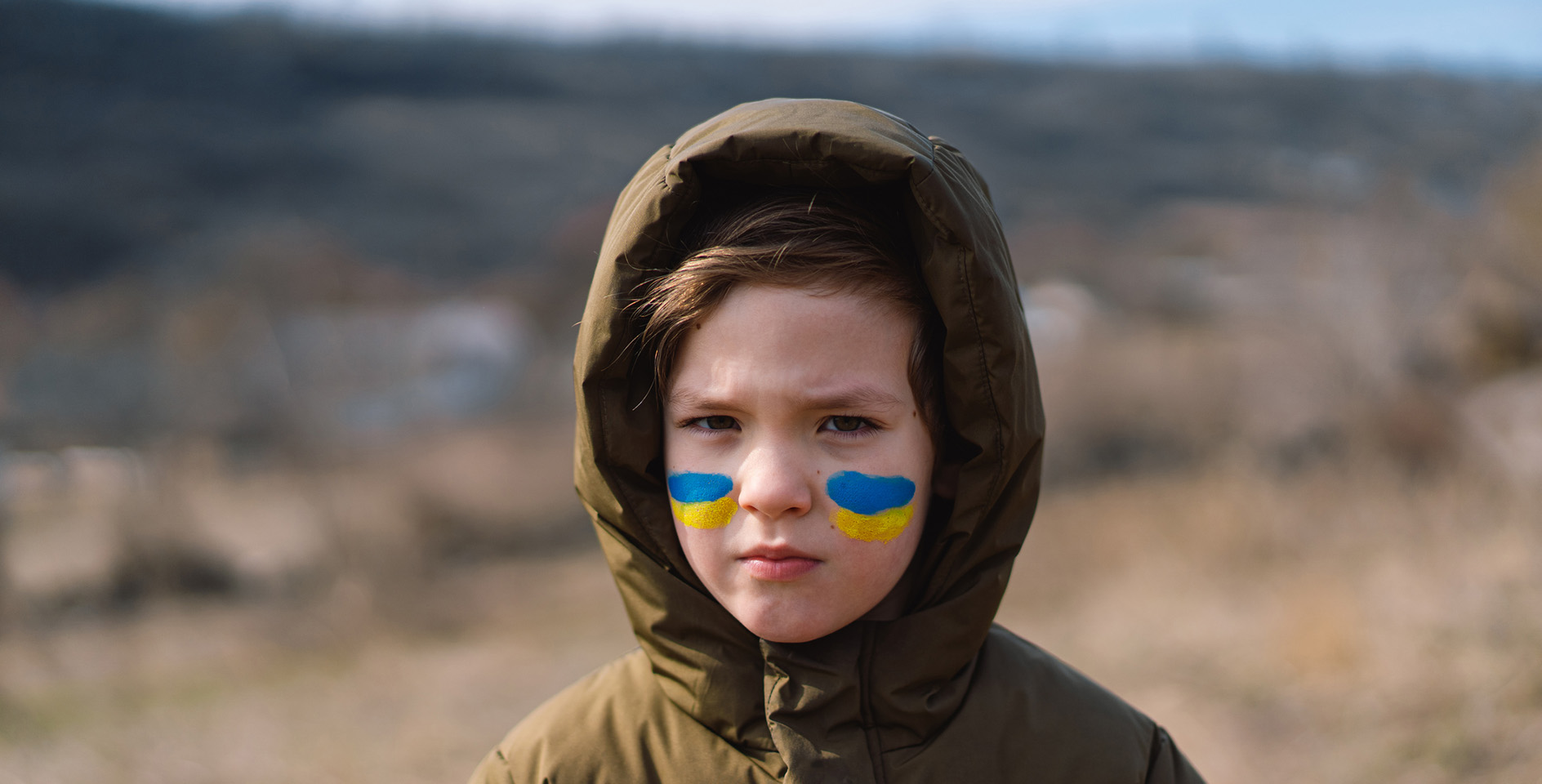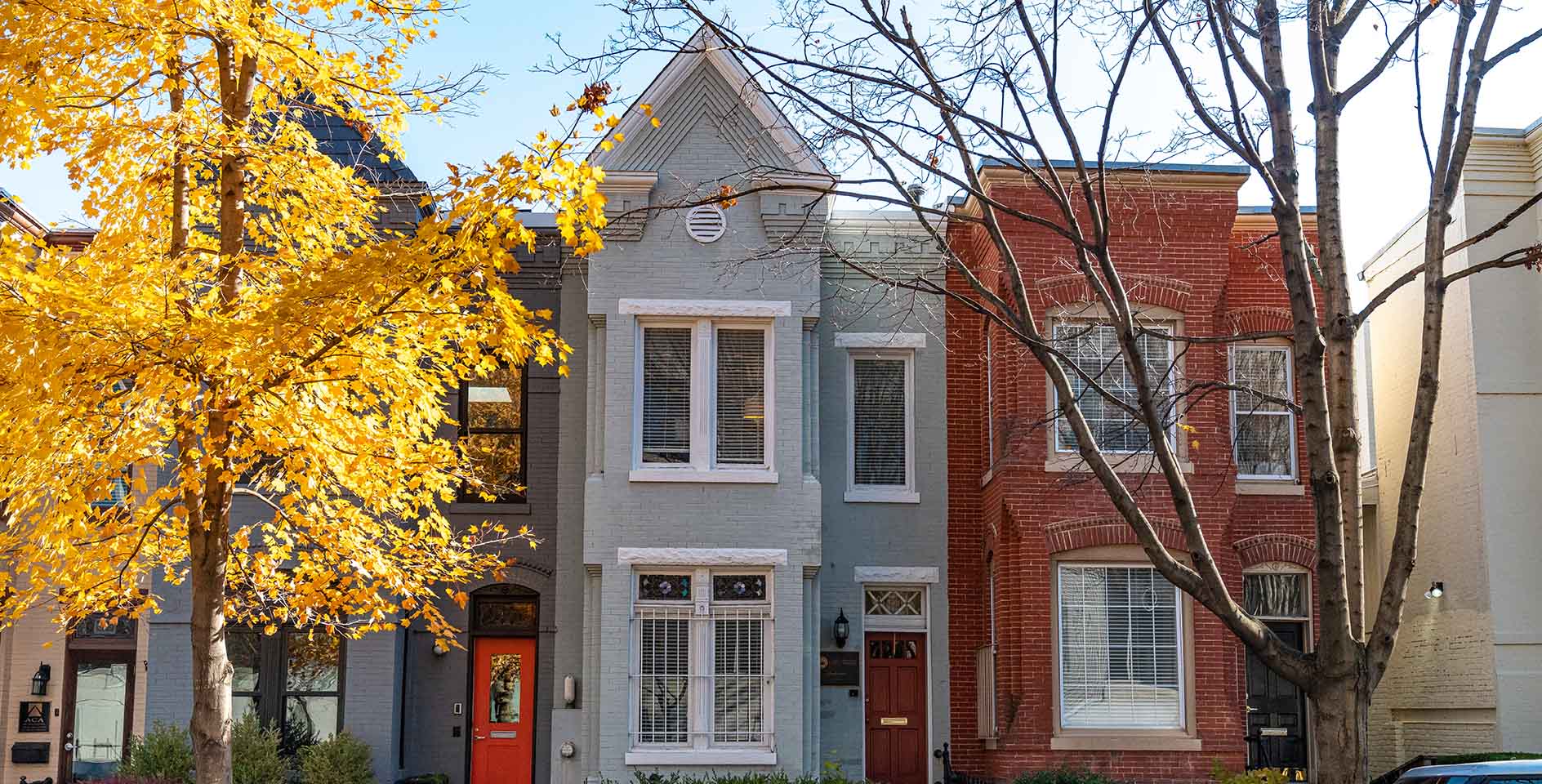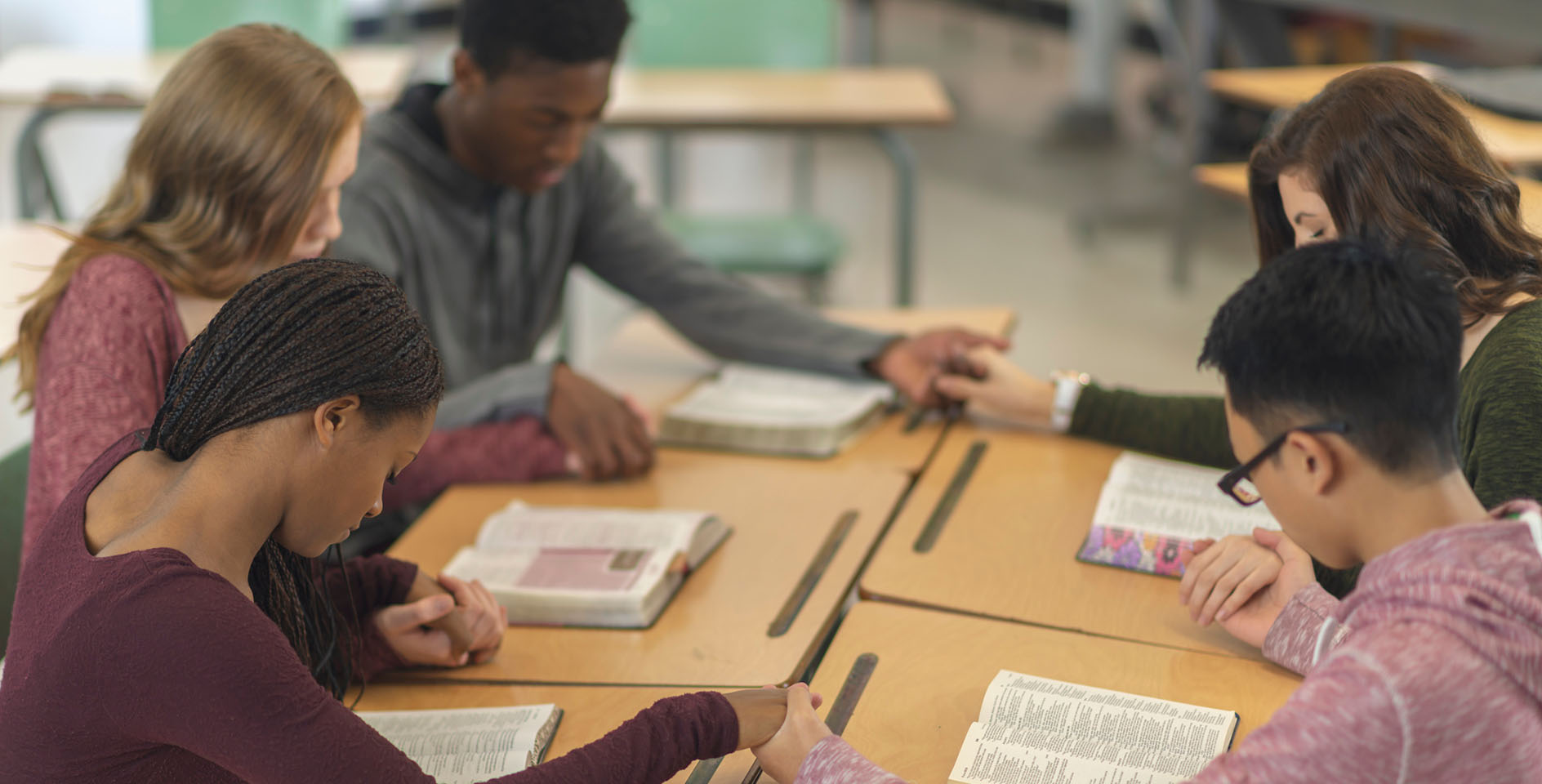At the turn of the 20th century, artists from around the world submitted proposals in a contest to enhance the grounds of the University of Geneva. The park improvements were chartered to mark the 400th birthday of the city’s own John Calvin and the 350th anniversary of the university he founded. The winning design was inaugurated in 1909 as the Monument international de la Réformation with 10 concrete statutes of theological titans sculpted into the old city walls of Geneva to represent the fortification of this city’s role in the Protestant Reformation. Over a century later, advocates from the Southern Baptist Convention traveled to Switzerland in the same spirit of one of the leaders honored in that monument, the Baptist forebear Roger Williams, to fortify religious liberty abroad through the United Nations Office at Geneva.
The United Nations Geneva offices are located in the Palais des Nations on the coast of Lake Geneva. Among the agencies headquartered there is The UN Human Rights Council. In 1986, the UNHRC established a Special Rapporteur on Freedom of Religion or Belief (FoRB). The UN offices in John Calvin’s city are significant to the work of the Ethics & Religious Liberty Commission because of the ample opportunities there to advocate for religious freedom.
SBC and conscience freedom
Messengers to the annual meetings of the Southern Baptist Convention make known year after year their commitment to conscience freedom through resolutions calling on the state to protect the fundamental right of religious liberty. To date, the Convention has passed well over 100 resolutions addressing the issue both at home and abroad because of the SBC’s significant interest in Great Commission cooperation overseas.
Our local churches send men and women to serve nearly every country and people group doing relief, development, and mission work. Southern Baptists serve their neighbors in foreign countries struck by natural disasters through disaster relief networks like the Baptist Global Response and promoting justice in local communities alongside organizations like International Justice Mission. The ERLC’s international work is focused on advocating for the most vulnerable, such as religious minorities in countries hostile to religious freedom and countering the mundane threat of everyday violence against the poor.
All of these international efforts led the ERLC team to the UN office in Geneva because of the SBC’s commitment to religious liberty and the Commission’s responsibility to carry out that resolve abroad.
The ERLC holds special consultative status with the United Nations Economic and Social Council as a nongovernmental organization. This status, which the ERLC has held for nearly 15 years, gives the organization access to meet with Member States and diplomats on the UN grounds, as well as participate in official UN sessions, events, and various deliberations. As an organization with official status, the ERLC is recognized as representative of the civil society sector in meetings with ambassadors and diplomats.
With this special consultative status, the ERLC engages the Human Rights Council’s Universal Periodic Review (UPR). The UPR in Geneva is a process driven by the Member States to review one another’s human rights records. When a country is scheduled for review, the ERLC submits reports on the threats to the country and opportunities for greater religious freedom. The ERLC appeals directly to the diplomatic community on the ground in Geneva to raise FoRB issues in their recommendations.
A focus on Malaysia
In 2018, the ERLC participated in the UPR process for Malaysia. The ERLC submitted two reports at the UN, one in partnership with the Religious Freedom Institute (RFI) on the country’s Hudud Law, and the other with the St. Charles Institute (SCI) on forced religious conversions. The ERLC also worked in close partnership with Malaysian attorney, Eugene Yapp, who is an advocate for religious freedom in Kuala Lumpur and the Religious Freedom and Liberty Partnership (RFL), a nongovernmental organization promoting freedom for their fellow Malay in submitting a third report.
The ERLC chose to focus on Malaysia because this country enjoys a rich history of pluralism and a constitution that protects religious freedom. Though more than 60 percent of this Southeast Asian country practices Sunni Islam, there is a small and vibrant Malaysian Christian minority of about 10 percent. Churches, seminaries, and other ministry efforts were historically allowed to exist and thrive for the last 200 years.
Malaysia registers the religion of all its citizens and prints that religious identifier on government-issued ID cards. Practicing Christians are at times even registered as Muslims because of forced conversions, marriage arrangements, or even simple clerical errors. Once a person is registered as a Muslim they are permanently treated as Muslims by the state. A Christian in such a situation who chose to marry another Christian would be unable to have their marriage legally recognized. Their children would then be registered accordingly as Muslim and required to attend Islamic schools. Such an administrative error would even lead this person to receive a Muslim burial at death. Due to the expanding influence of Sharia law in Malaysia, conversion from Islam to any other religion is totally prohibited. All of this is true even for those who are actual followers of Christ yet governmentally registered as Muslims.
The ERLC produced a film titled Malaysia: A Fight for Freedom and Identity to share these stories of people harmed by Malaysian state authority through these antiquated laws with the international advocacy community. The film released in Washington, D.C., during an event ERLC co-hosted with RFI during the week of the U.S. Department of State’s inaugural Ministerial for International Religious Freedom. This was but one instance of the many ways that the ERLC shares the stories of persecuted Christians and religious minorities throughout the world.
In Geneva, Malaysia’s UPR session took place during the Human Rights Council’s November 2018 meeting. After meeting with many of the member states and sharing the above film with them, the ERLC was heartened to see 10 member states offer recommendations related to FoRB issues.
Representatives from the United States recommended that Malaysia, “enhance protections for the right of freedom of religion or belief for all people in Malaysia, including the right to freely choose and practice their faith.” Other notable recommendations came from Croatia, “guarantee freedom of religion or belief to all, stemming racial and religious intolerance, including against the Christian community,” and from Kenya, “Undertake administrative, policy and legislative measures to guarantee freedom of religion and belief for all in Malaysia consistent with their constitution.” Albania, Haiti, Iraq, Spain, Venezuela, Brazil, and Sri Lanka also made recommendations related to FoRB issues.
In March 2019, Travis Wussow and Phillip Bethancourt, ERLC’s executive vice president, were in Geneva to hear Malaysia’s official response to these recommendations. Unfortunately, the Malaysian delegation was unmoved. According to our partner Yapp, the number of States which encouraged action on FoRB issues demonstrates, “increased awareness that Malaysia is no longer as moderate as is made out to be and is at likely risk towards the path of extremism.” The threats to religious freedom of our Malay neighbors are substantial, and the eyes of the world’s diplomatic community took notice. The ERLC is committed and will continue to work to protect our Christian brothers and sisters from further pressure and for the religious freedom of all Malaysians.
Turning to the north
For the remainder of this year, the ERLC will turn the prioritization of its international religious liberty work north, from Kuala Lumpur to Pyongyang. The Democratic People’s Republic of Korea (DPRK) is up for their state’s universal periodic review in 2019. The situation for religious liberty in North Korea is among the worst in the world. We seek to highlight Chairman Kim Jong Un’s persecution of his countrymen as the international community pays particular attention to the despot’s cruel regime. The ERLC is developing a film with brave North Korean defectors to provide opportunities for them to share their stories. By bringing these heroes of courageous faith into the spotlight of international attention, we hope to inspire change in this dark corner of persecution.
In the years to come, the team will share stories of courageous brothers and sisters in Christ whose freedom of religion and belief is trampled by state authority. We will make the case, wherever such authority is abused, for the kind of government we believe God institutes, a government that is not a terror to good conduct, but to bad.
People are made in God’s image, created with a conscience not under Caesar’s authority but the Lord’s. We promote religious liberty with decision makers in Geneva because we seek the common good of all people, those of all faiths or of no faith at all. And we can make this case for every person in every country and in every culture because human dignity does not spring up from national origin or citizenship but endowed as foundational from our Creator. With this belief sure and our commission clear, the ERLC will continue to leverage the United Nations office in Geneva to proclaim liberty for captives of conscience throughout the nations.
This article originally appeared in Light Magazine.



